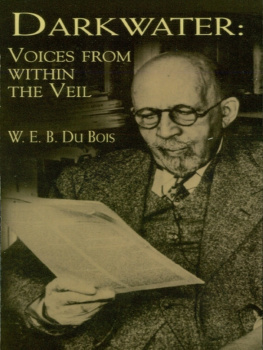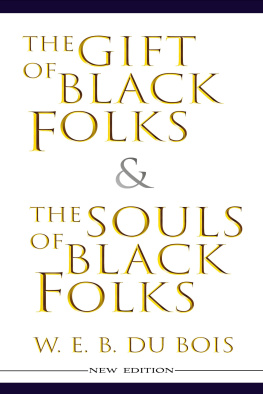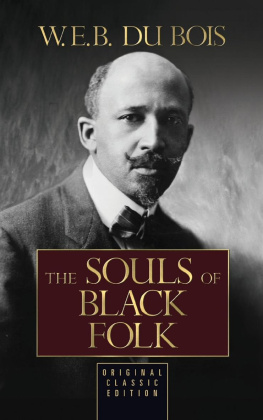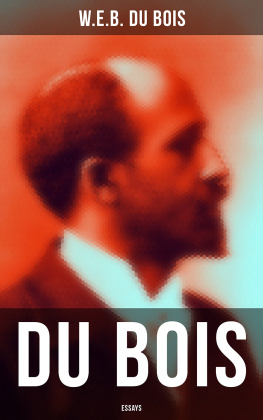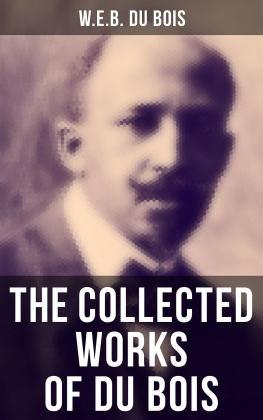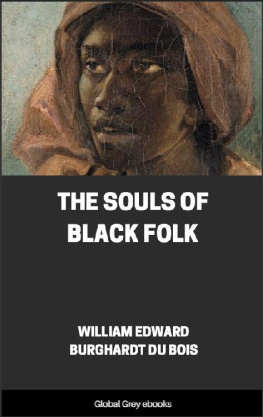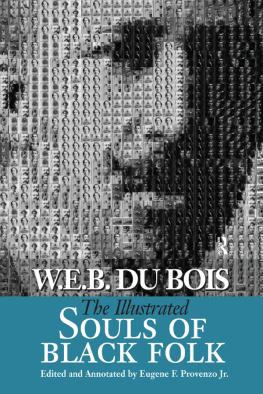Foreword
It is not uncommon for casual thinkers to assume that the United States of America is practically a continuation of English nationality. Our speech is English and the English played so large a part in our beginnings that it is easy to fall more or less consciously into the thought that the history of this nation has been but a continuation and development of these beginnings. A little reflection, however, quickly convinces us that at least there was present French influence in the Mississippi Valley and Spanish influence in the southeast and southwest. Everything else however that has been added to the American nationality is often looked upon as a sort of dilution of more or less doubtful value: peoples that had to be assimilated as far as possible and made over to the original and basic type. Thus we continually speak of Germans and Scandinavians, of Irish and Jews, Poles, Austrians and Hungarians; and, with few exceptions, we regard the coming of the Negroes as an unmitigated error and a national liability.
It is high time that this course of our thinking should be changed. America is conglomerate. This is at once her problem and her gloryperhaps indeed her sole and greatest reason for being. Her physical foundation is not English and while it is primarily it is not entirely European. It represents peculiarly a coming together of the peoples of the world. American institutions have been borrowed from England and France in the main, but with contributions from many and widely scattered groups. American history has no prototype and has been developed from the various racial elements. Despite the fact that our mother tongue is called English we have developed an American speech, with its idiosyncrasies and idioms, a speech whose purity is not to be measured by its conformity to the speech of the British Isles. And finally the American spirit is a new and interesting result of divers threads of thought and feeling coming not only from America but from Europe and Asia and indeed from Africa.
This essay is an attempt to set forth more clearly than has hitherto been done the effect which the Negro has had upon American life. Its thesis is that despite slavery, war and caste, and despite our present Negro problem, the American Negro is and has been a distinct asset to this country and has brought a contribution without which America could not have been; and that perhaps the essence of our so-called Negro problem is the failure to recognize this fact and to continue to act as though the Negro was what we once imagined and wanted to imagine him a representative of a subhuman species fitted only for subordination.
A moments thought will easily convince open minded persons that the contribution of the Negro to American nationality as slave, freedman and citizen was far from negligible. No element in American life has so subtly and yet clearly woven itself into the warp and woof of our thinking and acting as the American Negro. He came with the first explorers and helped in exploration. His labor was from the first the foundation of the American prosperity and the cause of the rapid growth of the new world in economic and social importance. Modern democracy rests not simply on the striving white men in Europe and America but also on the persistent struggle of the black men in America for two centuries. The military defense of this land has depended upon Negro soldiers from the time of the Colonial wars down to the struggle of the World War. Not only does the Negro appear, reappear and persist in American literature but a Negro American literature has arisen of deep significance, and Negro folk lore and music are among the choicest heritages of this land.
Finally the Negro had played a peculiai spiritual role in America as a sort of living breathing test of our ideals and an example of the faith, hope and tolerance of our religion.
The Racial Contributions to the United States
By Edw. F. McSweeney, LL. D.
In a general way, the Racial Contribution Series in the Knights of Columbus historical program is intended as a much needed and important contribution to national solidarity. The various studies are treated by able writers, citizens of the United States, each being in full sympathy with the achievements in this country of the racial group of whom he treats. The standard of the writers is the only one that will justify historical writing; the truth. No censorship has been exercised.
No subject now actively before the people of the United States has been more written on, and less understood, than alien immigration. Until 1819, there were no official statistics of immigration of any sort; the so-called census of 1790 was simply a report of the several states of their male white population under and over 15 years of age, all white females, slaves, and others. Statements as to the country of origin of the inhabitants of this country were, in the main, guesswork, with the result that, while the great bulk of such estimates was honestly and patriotically done, some of the most quoted during the present day were inspired, obviously to prove a predetermined case, rather than to recite the ascertained fact.
From the beginning the dominant groups in control in the United States have regarded each group of newer arrivals as more or less the enemy to be feared, and, if possible, controlled. A study of various cross-sections of the country will show dominant alien groups who formerly had to fight for their very existence. With increased numerical strength and prosperity they frequently attempted to do to the later aliens, frequently even of their own group, what had formerly been done to them: decry and stifle their achievements, and deny them opportunity, the one thing that may justly be demanded in a Democracy, by putting them in a position of inferiority.
To attempt, in this country, to set up a caste control, based on the accident of birth, wealth, or privilege, is a travesty of Democracy. Wffien Washington and his compatriots, a group comprising the most efficiently prepared men in the history of the world, who had set themselves definitely to form a democratic civilization, dreamed of and even planned by Plato, but held back by slavery and paganism, they found their sure foundations in the precepts of Christianity, and gave them expression in the Declaration of Independence. The liberty they sought, based on obedience to the law of God as well as of man, was actually established, but from the beginning it has met a constant effort to substitute some form of absolutism tending to break down or replace democratic institutions.
What may be called, for want of a better term, the colonial spirit, which is the essence of hyphenism, has persisted in this country to hamper national progress and national unity. Wherever this colonial spirit shows itself it is a menace to be fought, whether the secret or acknowledged attachment binds to England, Ireland, France, Germany, Italy, Greece or any other nation.
Jefferson pointed out that we have on this soil evolved a new race of men who may inexactly be called Americans. This term, as a monopoly of the United States, is properly objected to by our neighbors, North and South yet it has a definite meaning for the world.



